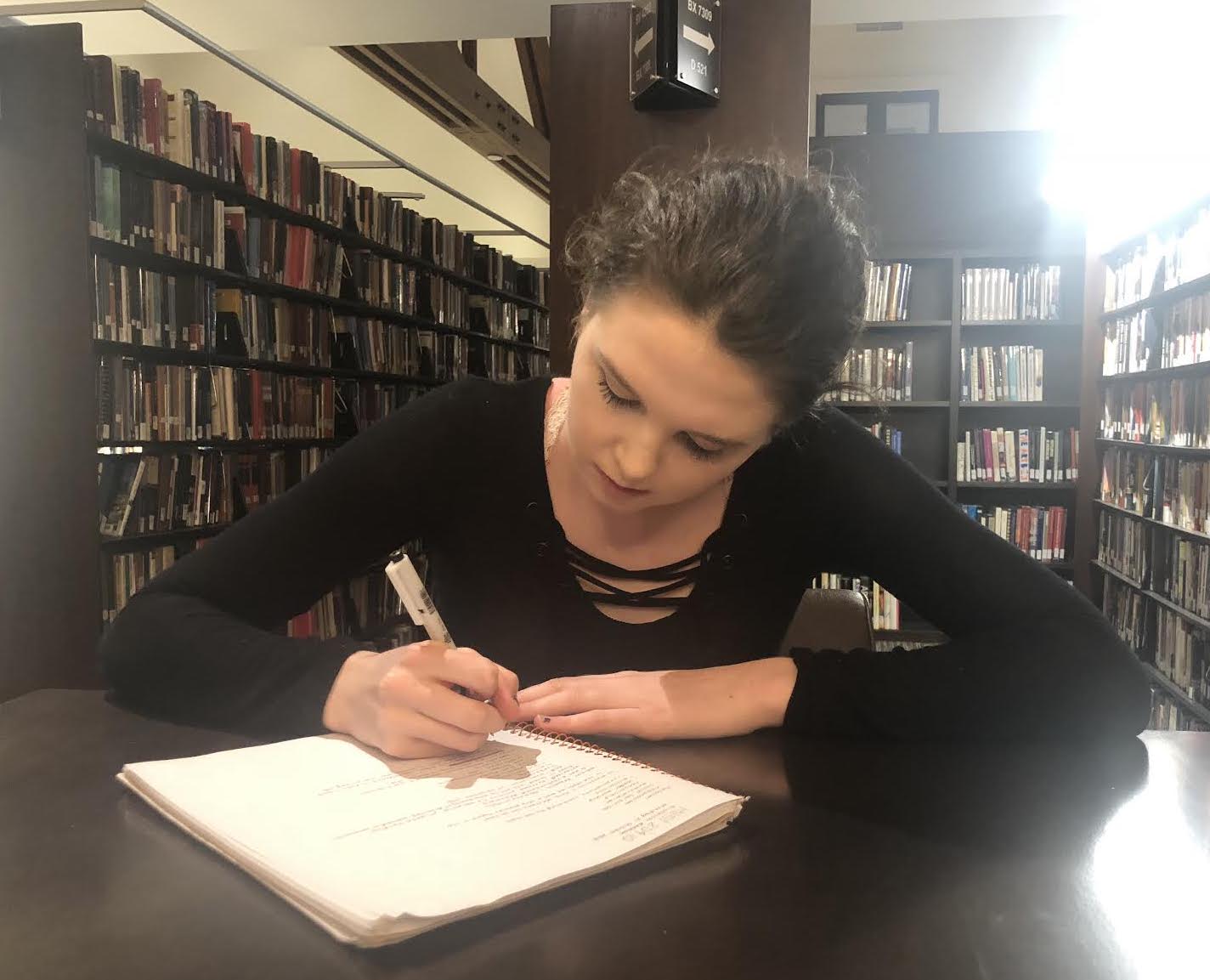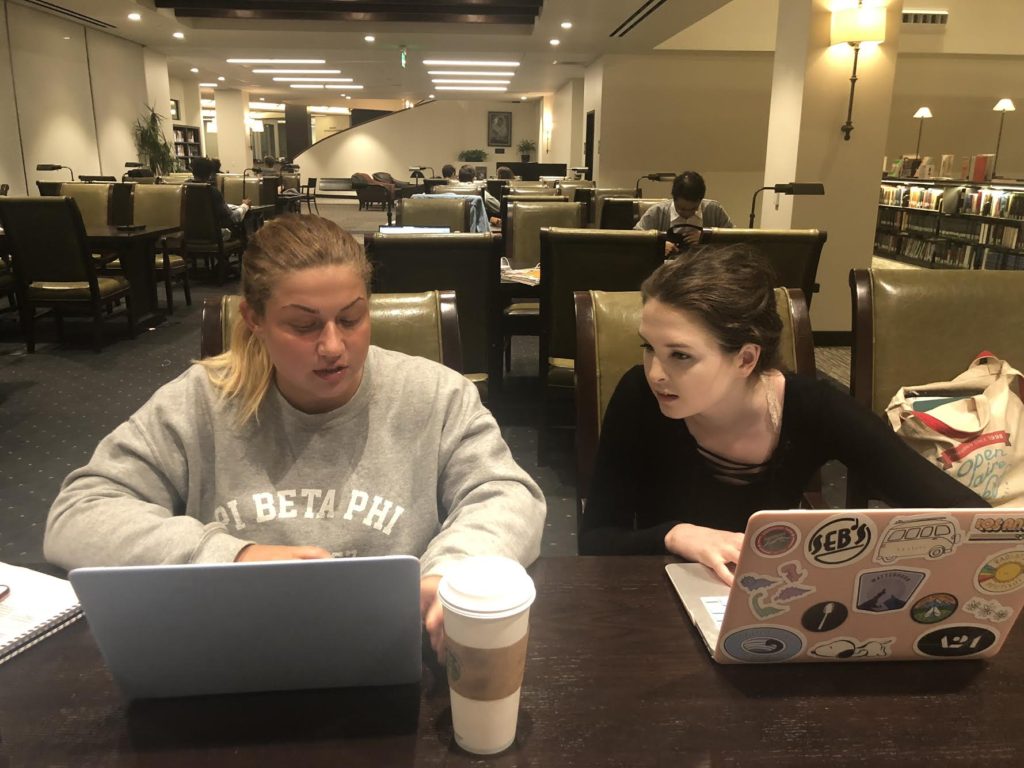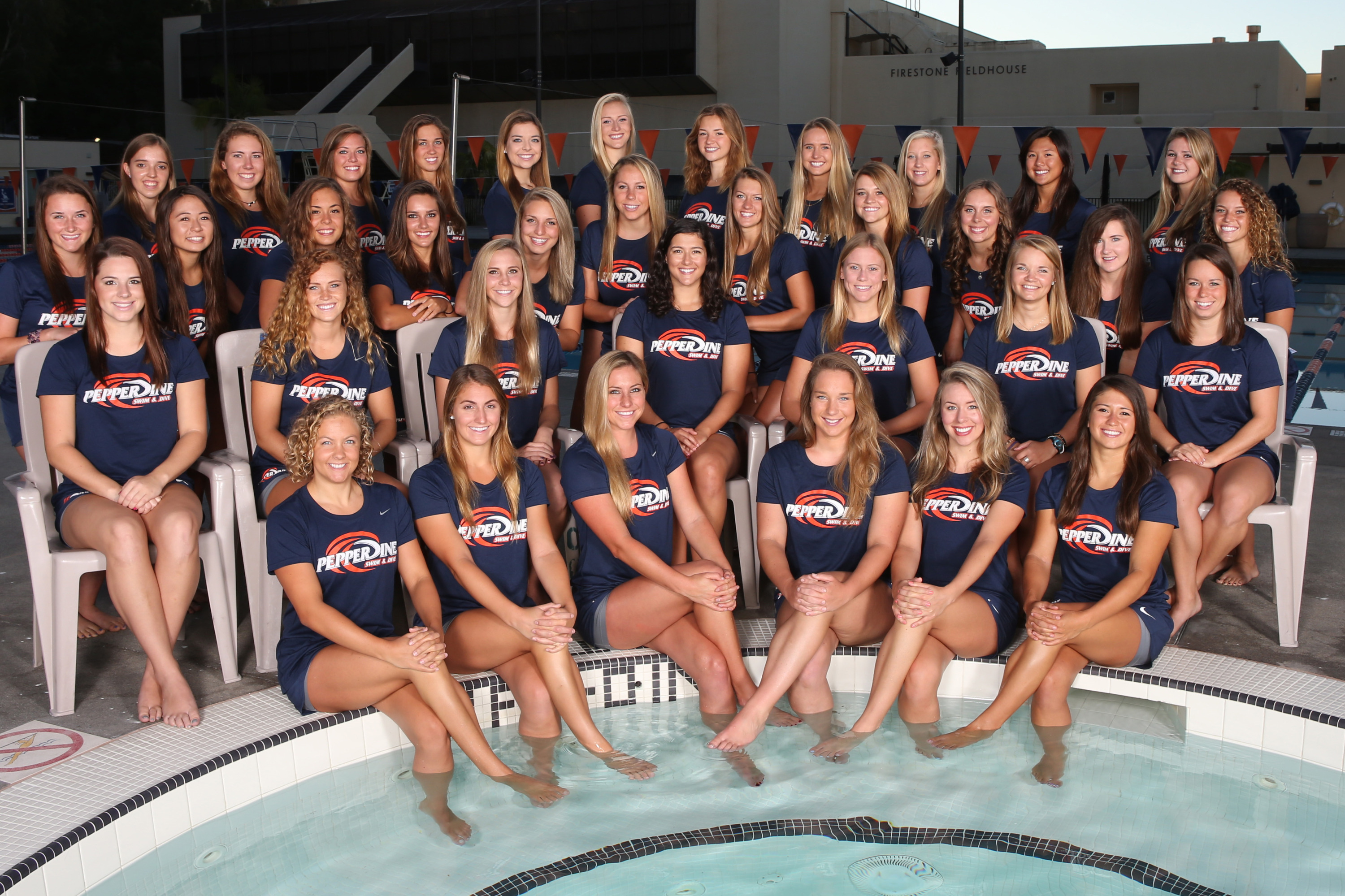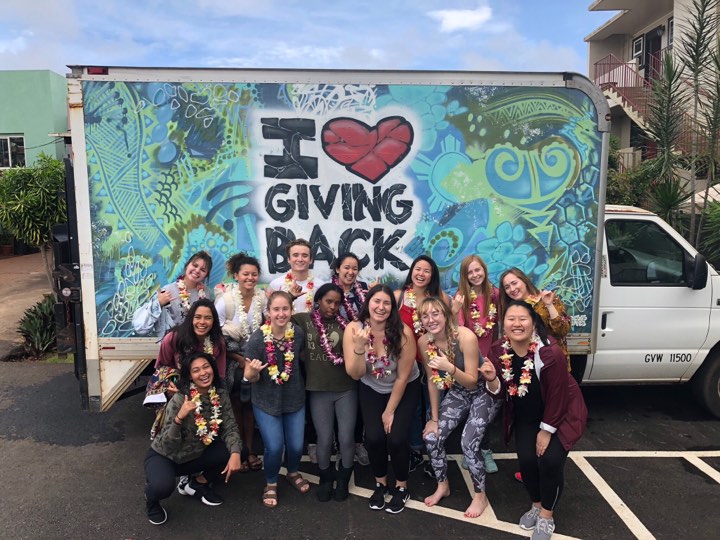
Pepperdine junior Shea McCollum has a passion for creative writing but also an interest in how people communicate.
Pursuing both interests, however, requires a heavier course load and leaves less time for other activities. However, for McCollum, the benefits outweigh the costs.
“It gives you more opportunities if you’re not sure what you want to do with your life yet,” McCollum said. “It gives you a little bit more of a chance to explore what you want to do.”
McCollum is among only 7 percent of students at Pepperdine who are double majors, said Andrea Harris, senior director of Student Administrative Service.
Adding a double major takes a lot of extra time and can be overwhelming but it allows students to expand their interests and become more well rounded, administrators said.Whether the double major is worth it depends on an individual’s goals.
Benefits of double majoring
There are many benefits to double majoring, even if it takes a lot of extra work.
“Students who major in two fields are more apt than their single-majoring peers to think both integratively and creatively,” Dan Brett wrote in a March 2013 Chronicle of Higher Education article.
In a Pepp Post survey of 92 students, only 21 percent of students said they are double majors. Students surveyed were pretty split on whether a double major would be worth the extra time and effort. However, nearly 40 percent said yes.
Double majoring exposes students to more subjects and additional learning opportunities, which can be very attractive to future employers.
“Future employers are looking for people who are multi-disciplinary in their background,” said Daniel Rodriguez, divisional dean of the Religion and Philosophy Division. “They want people who are broader in their perspective.”
The survey found that students who are double majoring do so because they are either truly interested in both fields, both their majors are equally important for their career plans, they wanted to get the most for their money, or because of family pressures.
There are even some students at Pepperdine who are pursuing a triple major.
“I am doing the triple major because I am super passionate about all of those fields of study,” said Grace Ramsey, a sophomore religion, philosophy and rhetoric and leadership triple major. “I want to maximize my time here at college and I want to learn as much as I possibly can and I love learning for the sake of learning.”
Ramsey said she is able to be a triple major because she came in with many credits coming into college.
Drawbacks of double majoring
There are still some drawbacks to double majoring. The survey found that many students said being a double major is either too expensive, takes too much time, there are too many GE requirements or it causes too much stress.
“It means taking five classes every semester, like a full load and maybe sacrificing time I could be spending getting a job or participating in other extracurriculars,” McCollum said.
The poll found that more than two-thirds of students see friends with double majors struggling.
If the heavy workload of a double major is preventing a student from doing as well as someone with only one major, then they should not be doing it, said Dean Baim, divisional dean of Business Administration.
“You can differentiate your resume by doing really well in the one major you have,” Baim said “You know a 3.7 or 3.8 GPA will get peoples’ attention. A 3.3 GPA with two majors will not make you all that different with someone with a 3.8 GPA and one major.”
Baim double majored in economics and political science but regretted this decision later on in life. In the end, he didn’t see his double major benefitting him as much as he had thought.
“Unless you have some real passion for these majors than you’re probably better off with a single major, ” Baim said
Double majoring is also hard to pursue in terms of scheduling.
“With the fact that some classes are only offered in spring or fall and some are never offered in summer it can be stressful,” Ramsey said.
Although academics are very important, it is not all that employers are looking for and that will be beneficial for the future. Future employers like to see students who are involved in internships, clubs and other extracurricular activities, administrators said.
Academics are “not the ‘end all, be all,’” said Amy Adams, executive director of the Seaver College Career Center. “There has to be other things that prepare you for the future.”

Caroline Toman, a junior double major in international studies and political science (left) and Shea McCollum, a junior double major in creative writing and intercultural communication, (right) work on a group project together in Payson library (Photo by Hannah Follman).
A double major is not for everyone
If a student wants to pursue a double major they must know what they’re getting into before they pursue it.
Dimitris Vitalakis, senior political science major, decided to drop his media production major after realizing how costly and time committing double majoring was going to be.
“I was going broke, my family was missing me and then ultimately your interests change when you are exposed to new academic and social environments,” Vitalakis said.
Especially with the amount of general education requirements Pepperdine has, it is hard for double majors to fit everything in their schedules, students said.
Junior Caroline Toman is debating whether to keep her double majors in international studies and political science because of the time and the expense. She only decided to double major after participating in the Washington D.C. program and has struggled to fit all the courses in in four years.
“It is a huge time commitment and it can also be pretty expensive,” Toman said. “It can be a financial burden if you have to take over 18 units or summer classes.”
If a student still wants to broaden their interests and expand their knowledge but doesn’t have the time to pursue a double major, administrators said adding a minor is a good option.
“You don’t necessarily have to do a full major to get enough knowledge to pacify what you’re curiosity is,” Harris said.
It depends on the major
It is also important to know how many units each major requires. Some majors require many more units than others, which makes double majoring even harder.
“It depends on what your major is, for sure, definitely,” junior math major Caroline Wick said. “The natural science field is practically impossible. But other fields it does make sense to have more than one major.”
It may be hard to add a double major if a student is a science or math major, but it may be more doable if a student is majoring in another area. For example, adding a language as a second major is easier, said Marie Seguin, a senior French and International Studies double major.
“A lot of the classes counted for both majors,” she said.
How to pursue a double major
Pursuing a double major is very doable but one needs to take the right steps to do so successfully, administrators said.
“Planning is key,” Adams said.
Students pursuing a double major not only have packed schedules of 17-18 units every semester but they also may need to take summer classes or even an extra semester/year to fit everything in.
The poll found that more students were pretty split on whether a double major would be worth staying a semester or two longer.
Double majoring takes a lot of organizing and planning but it can beneficial and help set students up for the future.
“I think it is really great to double major if you come into your undergraduate experience knowing what you’re double majoring in,” Toman said.
If a student is looking to double major it is better to decide sooner rather than later.
“Start thinking about it, especially if you’re a freshman or sophomore it is much easier if you start early,” Rodriguez said. “But seriously consider it … it is not too late to consider a double major.”
Hannah Follman completed the reporting for this story under the supervision of Dr. Christina Littlefield and Dr. Theresa de los Santos in Jour 241 in fall 2018. Dr. Littlefield supervised the web story. Dr. de los Santos supervised the video package.



